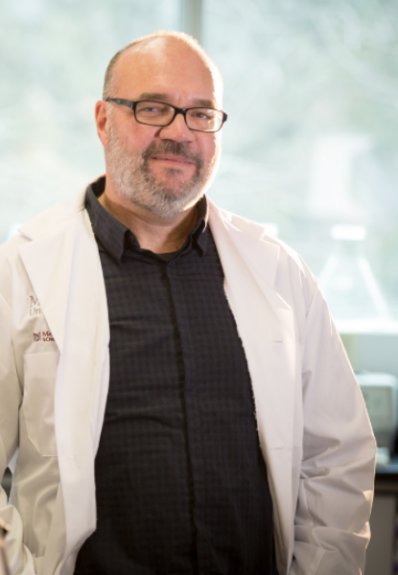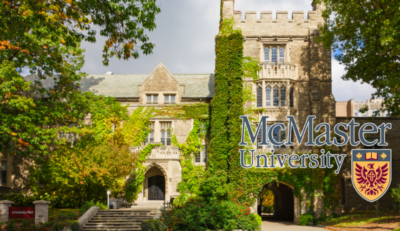 By Staff
By Staff
March 15th, 2023
BURLINGTON, ON
We all know what they mean when they saw you have to lockdown and remain in place.

Mayor Marianne Meed Ward on her veranda preparing to do a Facebook broadcast during the early stages of the Covid19 lockdown
Burlington, like every other community in the country did what had to be done to cope with a virus we knew little about.
It is still with us but we have a better understanding is as to what we are dealing with.
And we are planning to be better prepared for the next wave that is going to hit us.

Gerard Wright: Scientific Director, Michael G. DeGroote Institute for Infectious Disease Research
McMaster University will be taking a leading role in a new federal initiative designed to protect Canadians against future pandemics and emerging threats through the Canadian Pandemic Preparedness Hub (CP2H).
CP2H — co-led by McMaster and the University of Ottawa — is one of five major research hubs and part of a $10 million investment announced early in March 2 by François-Philippe Champagne, minister of Innovation, Science and Industry, and Jean-Yves Duclos, minister of Health.
The multidisciplinary research hubs — funded through Stage 1 of the integrated Canada Biomedical Research Fund (CBRF) and Biosciences Research Infrastructure Fund (BRIF) — will accelerate the research and development of next-generation vaccines, therapeutics and diagnostics and their commercialization, while supporting training to expand the pipeline of skilled talent.
“This funding for research, talent development and infrastructure projects is the foundation that will help us build a stronger, more robust domestic biomanufacturing sector in Canada that responds to the needs of Canadians for years to come,” Champagne said.
CP2H brings together more than 45 strategic partners from academia, industry, non-profit and governmental agencies from across the country to ensure Canadian discoveries are turned into the medicines of tomorrow in a cost-effective and timely fashion.
Its lead scientists are “academic entrepreneurs” who have organized national team projects and have led the design, building and acquisition of the specialized infrastructure that is key to the hub’s success.
McMaster is on the leading-edge of pandemic-related research at Canada’s Global Nexus for Pandemics and Biological Threats, said Karen Mossman, McMaster’s vice-president, research, adding that Hamilton — driven, in part, by the McMaster Innovation Park — is one of the country’s fastest growing life sciences clusters.
“We’re perfectly positioned to co-lead this initiative and work with our industry and academic partners to support both Canada’s and Ontario’s life sciences strategy, expand our innovation ecosystem and bridge the gap between lab and market,” Mossman said.
The Global Nexus for Pandemics and Biological Threats is central to the hub and will play a critical role in its success, said Gerry Wright, executive director of Global Nexus.

McMaster University has been the recipient of several donation from Michael DeGroote
“McMaster – through Global Nexus – will provide world-class talent and infrastructure to the hub’s partners to create a vibrant biomanufacturing sector that will increase the country’s life sciences capacity and ensure Canadians are fully prepared to prevent and respond to future pandemics,” Wright said.
Matthew Miller, scientific director of the Michael G. DeGroote Institute for Infectious Disease Research and a member of Global Nexus, will serve as CP2H’s inaugural co-scientific director. Mossman will chair the hub’s advisory board.
Little did Michael DeGroote know that his very large donations to McMaster would lead to something like this.





















Soon be over Canada, the peeps have had enough.
https://www.bbc.com/news/world-europe-64967513 Farmers’ protest party win shock Dutch vote victory
Say one thing we all learned…be self sufficient as a nation when required.
After SARS outbreak Canada prepared a report on how to deal with the next one.
It ended up in the Circular File. Author of the report – Dr. Theresa Tam